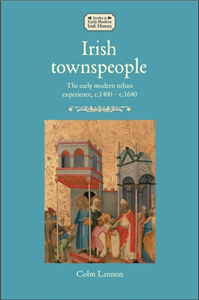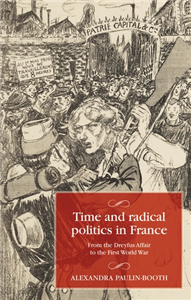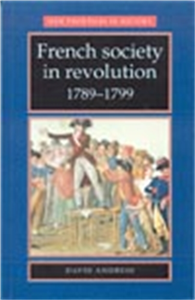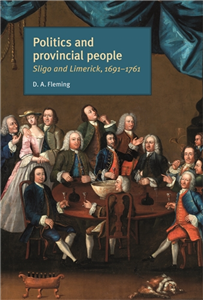Your Search Results
-
Get Fresh Books Publishing
Get Fresh Books Publishing is a non-profit, cooperative press devoted to amplifying diverse voices in poetry and making the publication process accessible to marginalized communities. Our primary objective is to provide opportunities for underrepresented voices by eliminating economic and societal barriers, such as submission fees and contests, which may inhibit marginalized voices from contributing to the literary conversation. As a cooperative press, we encourage manuscript submissions from BIPOC, LGBTQ+, people with disabilities and people living with mental illnesses. By doing so, we explicitly reject any “ism” or phobia which seeks to suppress the voices of those who receive insufficient or inadequate representation in literature. In the four short years of our founding, we have been able to preserve our commitment to diversity and inclusivity by publishing the work of 12 talented and distinct poets, whose poetry cover a wide range of topics from ethnicity, sexuality and religion to immigration, suicide and discrimination. Our press’s cooperative process of integrating the ideas and skills of our poets, editors and publisher have given us the ability to bring fresh and diverse voices into the literary world. With the help of donations, grants and private investments, we have been able to publish each literary work without charging a single submission fee to ensure that poets and writers of all ages, ethnicities, sexual orientations, abilities, and economic statuses would have their voices heard.
View Rights Portal
-
Promoted ContentThe ArtsDecember 2019
Screening the Paris suburbs
From the silent era to the 1990s
by Philippe Met, Annie Fourcaut, Roland-François Lack, Jean-Louis Pautrot, Keith Reader, Margaret Flinn, Eric Bullot, Tristan Jean, Malcolm Turvey, Elisabeth Cardonne-Arlyck, Térésa Faucon, Philippe Met, Camille Canteux, Derek Schilling, Guillaume Soulez, David Vasse, Derek Schilling
Decades before the emergence of a French self-styled 'hood' film around 1995, French filmmakers looked beyond the gates of the capital for inspiration and content. In the Paris suburbs they found an inexhaustible reservoir of forms, landscapes and social types in which to anchor their fictions, from bourgeois villas and bucolic riverside cafés to post-war housing estates and postmodern new towns. For the first time in English, contributors to this volume address key aspects of this long film history, marked by such towering figures as Jean Renoir, Jacques Tati and Jean-Luc Godard. Idyllic or menacing, expansive or claustrophobic, the suburb served divergent aesthetic and ideological programmes across the better part of a century. Themes central to French cultural modernity - class conflict, leisure, boredom and anti-authoritarianism - cut across the fifteen chapters.
-
Promoted ContentThe ArtsJanuary 2019
Francois Truffaut
by Diana Holmes, Robert Ingram
First in a series designed to situate and explain the films of French directors. A concise, accessible and original reading of Truffaut's films. A timely evaluation of the films of a popular director whose work features on most A-level French syllabuses and on the majority of University French Studies programmes both in the UK and the USA .
-
 Trusted Partner
The ArtsJanuary 2019
Trusted Partner
The ArtsJanuary 2019Contemporary French cinema
An introduction (revised edition)
by Guy Austin
Contemporary French cinema is an essential introduction to popular French film of the last 35 years. It charts recent developments in all genres of French cinema with analyses of over 120 movies, from Les Valseuses to Caché. Reflecting the diversity of French film production since the New Wave, this clear and perceptive study includes chapters on the heritage film, the thriller and the war movie, alongside the 'cinéma du look', representations of sexuality, comedies, the work of women film makers and le jeune cinéma. Each chapter introduces the public reception and critical debates surrounding a given genre, interwoven with detailed accounts of relevant films. Confirmed as a major contribution to both Film Studies and French Studies, this book is a fascinating volume for students and fans of French film alike.
-
 Trusted Partner
The ArtsJune 2021
Trusted Partner
The ArtsJune 2021Contemporary French cinema
An introduction (revised edition)
by Guy Austin
Contemporary French cinema is an essential introduction to popular French film of the last 35 years. It charts recent developments in all genres of French cinema with analyses of over 120 movies, from Les Valseuses to Caché. Reflecting the diversity of French film production since the New Wave, this clear and perceptive study includes chapters on the heritage film, the thriller and the war movie, alongside the 'cinéma du look', representations of sexuality, comedies, the work of women film makers and le jeune cinéma. Each chapter introduces the public reception and critical debates surrounding a given genre, interwoven with detailed accounts of relevant films. Confirmed as a major contribution to both Film Studies and French Studies, this book is a fascinating volume for students and fans of French film alike.
-
 Trusted Partner
Humanities & Social SciencesMarch 2017
Trusted Partner
Humanities & Social SciencesMarch 2017The French empire at War, 1940–1945
by Martin Thomas
The French empire at war draws on original research in France and Britain to investigate the history of the divided French empire - the Vichy and the Free French empires - during the Second World War. What emerges is a fascinating story. While it is clear that both the Vichy and Free French colonial authorities were only rarely masters of their own destiny during the war, preservation of limited imperial control served them both in different ways. The Vichy government exploited the empire in an effort to withstand German-Italian pressure for concessions in metropolitan France and it was key to its claim to be more than the mouthpiece of a defeated nation. For Free France too, the empire acquired a political and symbolic importance which far outweighed its material significance to the Gaullist war effort. As the war progressed, the Vichy empire lost ground to that of the Free French, something which has often been attributed to the attraction of the Gaullist mystique and the spirit of resistance in the colonies. In this radical new interpretation, Thomas argues that it was neither of these. The course of the war itself, and the initiatives of the major combatant powers, played the greatest part in the rise of the Gaullist empire and the demise of Vichy colonial control.
-
 Trusted Partner
Humanities & Social SciencesMarch 2017
Trusted Partner
Humanities & Social SciencesMarch 2017The French empire between the wars
Imperialism, politics and society
by Martin Thomas
By considering the distinctiveness of the inter-war years as a discrete period of colonial change, this book addresses several larger issues, such as tracing the origins of decolonization in the rise of colonial nationalism, and a re-assessment of the impact of inter-war colonial rebellions in Africa, Syria and Indochina. The book also connects French theories of colonial governance to the lived experience of colonial rule in a period scarred by war and economic dislocation.
-
 Trusted Partner
The ArtsJanuary 2019
Trusted Partner
The ArtsJanuary 2019French cinema in the 1970s
The echoes of May
by Alison Smith
This book re-examines French cinema of the 1970s. It focuses on the debates which shook French cinema, and the calls for film-makers to rethink their manner of filming, subject matter and ideals in the immediate aftermath of the student revolution of May 1968. Alison Smith examines the effect of this re-thinking across the spectrum of French production, the rise of new genres and re-formulation of older ones. Chapters investigate political thrillers, historical films, new naturalism and Utopian fantasies, dealing with a wide variety of films. A particular concern is the extent to which film-makers' ideas and intentions are contained in or contradicted by their finished work, and the gradual change in these ideas over the decade. The final chapter is a detailed study of two directors who were deeply involved in the debates and events of the 70s, William Klein and Alain Tanner, here taken as exemplary spokesmen for those changing debates as their echoes reached the cinema.
-
 Trusted Partner
Trusted Partner
-
 Trusted Partner
Trusted Partner
-
 Trusted Partner
Literature & Literary StudiesAugust 2021
Trusted Partner
Literature & Literary StudiesAugust 2021The Massacre at Paris
By Christopher Marlowe
by Martin White, Mathew R. Martin
This volume presents a modernised edition of Christopher Marlowe's critical engagement with one of the bloodiest and traumatic episodes of the French Wars of Religion, the wholesale massacre of French Huguenots in Paris in August, 1572. Sensorily shocking and intellectually gripping, the play's dramatic action spans a tumultuous two decades in French history to unfold for its audience the tragic consequences of religious fanaticism, power politics, and dynastic rivalry. Comprehensively introduced and containing full commentary notes, this edition opens up this frequently neglected but historically significant and dramatically powerful play to student and scholar alike. The introduction examines such topics as the history of the massacre, the play's treatment of its sources, the play's dramatisation of trauma, and the play's exploration of notions of religious toleration.
-
 Trusted Partner
Literature & Literary StudiesFebruary 2025
Trusted Partner
Literature & Literary StudiesFebruary 2025The Massacre at Paris
By Christopher Marlowe
by Mathew R. Martin
This volume presents a modernised edition of Christopher Marlowe's critical engagement with one of the bloodiest and traumatic episodes of the French Wars of Religion, the wholesale massacre of French Huguenots in Paris in August, 1572. Sensorily shocking and intellectually gripping, the play's dramatic action spans a tumultuous two decades in French history to unfold for its audience the tragic consequences of religious fanaticism, power politics, and dynastic rivalry. Comprehensively introduced and containing full commentary notes, this edition opens up this frequently neglected but historically significant and dramatically powerful play to student and scholar alike. The introduction examines such topics as the history of the massacre, the play's treatment of its sources, the play's dramatisation of trauma, and the play's exploration of notions of religious toleration.
-
 Trusted Partner
Trusted Partner
-
 Trusted Partner
Humanities & Social SciencesMay 2026
Trusted Partner
Humanities & Social SciencesMay 2026Irish townspeople
The early modern urban experience, c.1400–c.1640
by Colm Lennon
Through a series of innovative perspectives, this book examines how early modern Irish townspeople experienced the urban world through a range of family and associational ties. Migrants inducted through town citizenship and marriage bonded more closely as sisters or brothers of confraternities and guilds, consolidating parish membership. Civic religion saw the integration of religion with town politics and councils, and monastic charity of the friars' hospitals preceded the era of modern municipal welfare. In circumstances of the alienation of the long-settled Catholic townspeople from the state's religious and political Reformation in the seventeenth century, they drew sustenance from the continuity of institutions such as colleges, fraternities and hospitals and forms of coexistence with Protestant fellow-citizens.
-
 Trusted Partner
The ArtsJanuary 2017
Trusted Partner
The ArtsJanuary 2017Representing ethnicity in contemporary French visual culture
by Joseph McGonagle
-
 Trusted Partner
Humanities & Social SciencesMay 2023
Trusted Partner
Humanities & Social SciencesMay 2023Time and radical politics in France
From the Dreyfus Affair to the First World War
by Alexandra Paulin-Booth
This book investigates how people have thought about and experienced time, and how their ideas about time have shaped their political views and actions. Using French thinkers and activists of the radical left and right between the Dreyfus Affair and the First World War as a case study, it argues that time provides an important means of exploring how concepts such as nationalism, revolution and social change were understood at the turn of the century. Attending to different experiences of time - the speed at which it was perceived to move, the extent to which the future was near and graspable, the ways in which the past was seen to impinge on the present - opens up exciting new possibilities for analysing politics, ideologies and worldviews.
-
 Trusted Partner
The ArtsDecember 2008
Trusted Partner
The ArtsDecember 2008Contemporary French cinema
An introduction (revised edition)
by Guy Austin
Contemporary French cinema is an essential introduction to popular French film of the last 35 years. It charts recent developments in all genres of French cinema with analyses of over 120 movies, from Les Valseuses to Caché. Reflecting the diversity of French film production since the New Wave, this clear and perceptive study includes chapters on the heritage film, the thriller and the war movie, alongside the 'cinéma du look', representations of sexuality, comedies, the work of women film makers and le jeune cinéma. Each chapter introduces the public reception and critical debates surrounding a given genre, interwoven with detailed accounts of relevant films. Confirmed as a major contribution to both Film Studies and French Studies, this book is a fascinating volume for students and fans of French film alike. ;
-
 Trusted Partner
Literature & Literary StudiesJanuary 2013
Trusted Partner
Literature & Literary StudiesJanuary 2013Joan of Arc
La pucelle
by Craig Taylor
This sourcebook collects together for the first time in English the major documents relating to the life and contemporary reputation of Joan of Arc. Also known as La Pucelle, she led a French Army against the English in 1429, arguably turning the course of the war in favour of the French king Charles VII. The fact that she achieved all of this when just a seventeen-year-old peasant girl highlights the magnitude of her achievements and also opens up other ways of looking at her story. For many, Joan represents the voice of ordinary people in the fifteenth century; the victims of high politics and warfare that devastated France. Her story ended tragically in 1431 when she was put on trial for heresy and sorcery by an ecclesiastical court and was burned at the stake. This book shows how the trial, which was organised by her enemies, provides an important window into late medieval attitudes towards religion and gender, as Joan was effectively persecuted by the established Church for her supposedly non-conformist views on spirituality and the role of women. Presented within a contextual and critical framework, this book encourages scholars and students to rethink this remarkable story. It will be invaluable reading for those working in the fields of medieval society and heresy, as well as the Hundred Years' War.
-
 Trusted Partner
The ArtsMarch 2005
Trusted Partner
The ArtsMarch 2005French cinema in the 1970s
The echoes of May
by Alison Smith
This book re-examines French cinema of the 1970s. It focuses on the debates which shook French cinema, and the calls for film-makers to rethink their manner of filming, subject matter and ideals in the immediate aftermath of the student revolution of May 1968. Alison Smith examines the effect of this re-thinking across the spectrum of French production, the rise of new genres and re-formulation of older ones. Chapters investigate political thrillers, historical films, new naturalism and Utopian fantasies, dealing with a wide variety of films. A particular concern is the extent to which film-makers' ideas and intentions are contained in or contradicted by their finished work, and the gradual change in these ideas over the decade. The final chapter is a detailed study of two directors who were deeply involved in the debates and events of the 70s, William Klein and Alain Tanner, here taken as exemplary spokesmen for those changing debates as their echoes reached the cinema. ;
-
 Trusted Partner
Humanities & Social SciencesApril 1999
Trusted Partner
Humanities & Social SciencesApril 1999French society in revolution 1789–1799
by David Andress, Mark Greengrass
French society in revolution aims to retrieve the social history of the French Revolution from unjustified neglect. This study examines both the structural and cultural elements behind the breakdown of the eighteenth-century monarchic state and its aris. . . . ;
-
 Trusted Partner
Humanities & Social SciencesJuly 2010
Trusted Partner
Humanities & Social SciencesJuly 2010Politics and provincial people
Sligo and Limerick, 1691–1761
by D. A. Fleming
This ground-breaking study is the first to systematically examine the politics and political culture of provincial Ireland. The book compares two distinct localities that provide differing perspectives on how politics and power manifested itself in provincial Ireland: Sligo in the north west and Limerick in the south west. Drawing on a wealth of previously unknown and under-utilised contemporary material, David Fleming focuses on individuals who were determined to shape the political landscape and those who were affected by their actions. The book challenges many accepted models of how Ireland and the Irish were governed. While the propertied élite dominated many aspects of the political process, individuals and groups from the professional, mercantile, rural and other sections of society - the 'middling orders' - were also active in local institutions and office-holding. Their story, recounted here, reveals a far more complex set of relationships. Politics and provincial people is a carefully constructed story of people's motivations, ideas, and actions, and offers new insights into the complexity of their lives and the Irish political landscape. ;

























